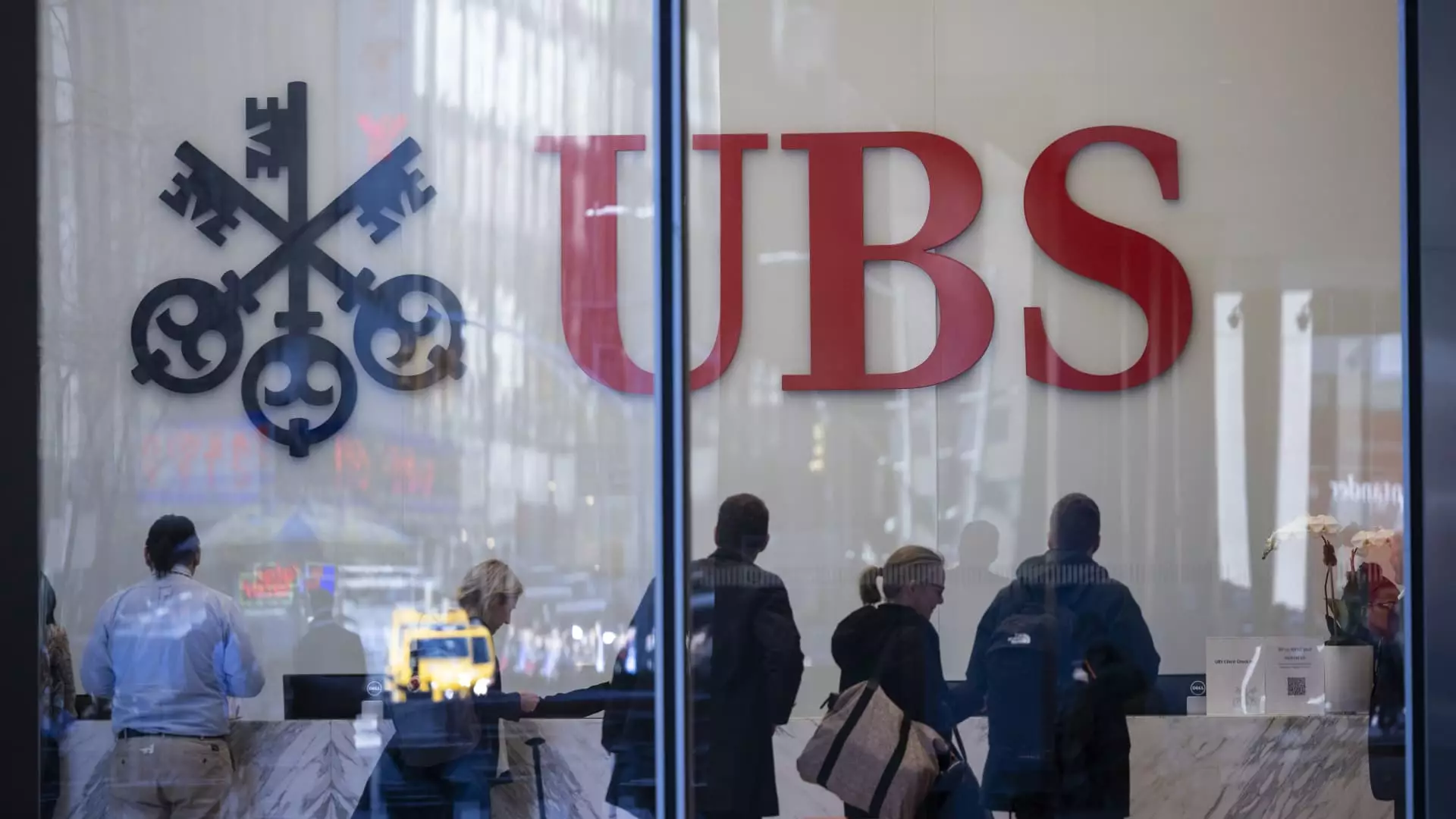In a remarkable demonstration of resilience, UBS Group AG recently reported profits that significantly exceeded analyst predictions, highlighting a successful turnaround following the acquisition of their beleaguered rival, Credit Suisse. For the third quarter, UBS announced a net profit attributable to shareholders of $1.43 billion, overshadowing the anticipated figure of $667.5 million. This performance illustrates the bank’s strategic prowess as it emerges from the complexities surrounding the merger and consolidates its market position.
UBS’s total group revenue encapsulated this growth, reaching $12.33 billion—a notable increase beyond the analyst forecast of approximately $11.78 billion. Such substantial growth not only reflects the successful migration of clients to UBS’s systems but also underpins the bank’s efforts to stabilize and expand its service offerings in a competitive landscape.
Other indicators of UBS’s operational strength are equally noteworthy. The operating profit before tax surged to $1.93 billion, recovering from a loss of $184 million during the same period in the previous year. This financial rebound illustrates a robust operational turnaround and sets the stage for future financial planning and investment. Furthermore, the return on tangible equity climbed to 7.3%, an uplift from 5.9% in the preceding quarter. Such metrics are critical as they demonstrate the bank’s efficiency in generating profits from its equity base, which is fundamental for shareholder confidence.
UBS has also reaffirmed its commitment to returning value to shareholders by announcing a continuation of its $1 billion share buyback program, expected to be completed in the fourth quarter. Plans to pursue further repurchases in the following year signal a dedication to maintaining shareholder value amidst an evolving economic landscape.
Despite these strong figures, UBS is not without challenges, particularly within its Global Wealth Management sector, which suffered a 6% year-over-year decline. This reduction is primarily attributed to decreased deposit margins and diminished loan revenues, signaling sluggish performance amid declining average volumes. UBS acknowledges the need to adapt to market conditions by enhancing its service offerings and expanding product availability in this division.
Moreover, UBS has undertaken an ambitious IT integration project to merge its technology with that of Credit Suisse, which presents both logistical hurdles and potential synergies. While the migration of wealth management clients in sectors such as Luxembourg and Hong Kong has been completed, ongoing transitions in locations like Singapore and Japan remind stakeholders that the integration process demands patience and strategic foresight.
Looking ahead, CEO Sergio Ermotti faces the intricate task of steering UBS through a multifaceted landscape marked by geopolitical instability and fluctuating interest rates. The Swiss economy, although currently robust with a strong currency and low inflation rates, remains susceptible to shifts in international markets.
In their latest statements, UBS has highlighted a mix of optimism and caution, indicating that while client activity has remained strong, external uncertainties—from geopolitical conflict to upcoming elections in the U.S.—will likely influence investor behavior. The bank’s acknowledgment of these factors underscores a prudent outlook, given the unpredictable nature of today’s macroeconomic environment.
UBS’s recent financial performance offers valuable insights into both its operational recovery and the complexities it must navigate going forward. The bank’s successful integration of Credit Suisse demonstrates its strength, but the challenges in the wealth management division reflect a necessity for innovation and adaptability. As UBS progresses into the next phase of its strategy, maintaining a clear focus on balancing shareholder value and managing external risks will be critical not only for its profitability but also for its long-term sustainability in a challenging financial landscape.



Leave a Reply